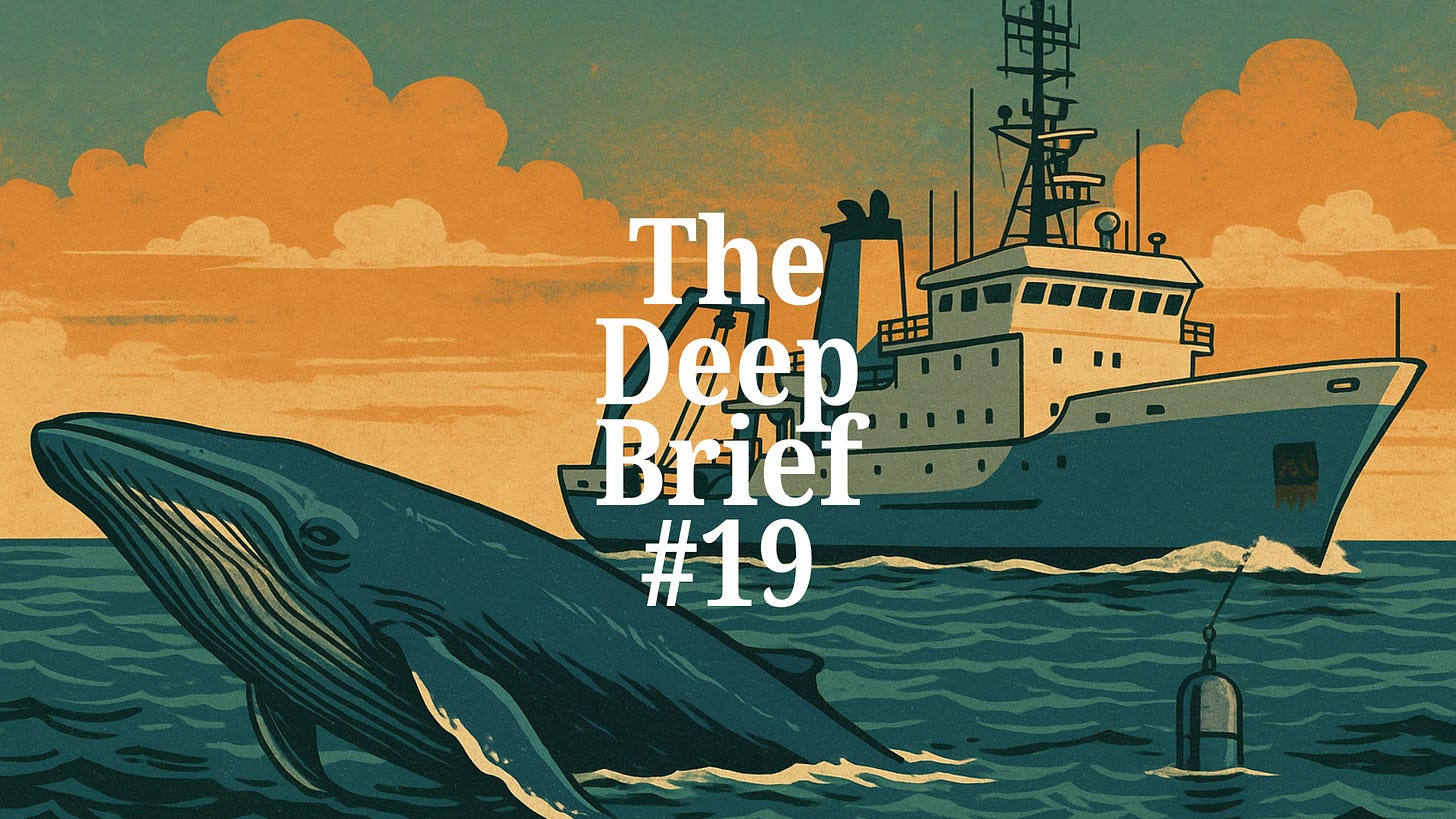The Deep Brief #19 | 16 November 2025
Your end-of-week ocean intelligence, built to inform, agitate, and equip you
The ocean story this week is about architecture and thresholds.
Negotiators are shaping an ocean agenda for COP30. Scientists are testing ideas about how Antarctic meltwater could influence global currents. Coastal acidification is accelerating beyond expectations. Together, these signals describe a system that needs governance with teeth and science with reach.
This week’s Deep Brief connects the politics, the physics and the chemistry that rarely make headlines yet could define the century ahead.
Three deep dives. Three quick hits. One hard truth from the sea.
Deep Dives
Oceans at COP30: from speeches to structures
Momentum for the ocean at COP30 will mean little without institutions that lock progress in. The emerging plan is to move beyond pledges toward an architecture for change that aligns finance, monitoring and enforcement with biodiversity and climate goals. The success test is simple. Will outcomes be measurable, binding and funded?
Antarctic melt and a crucial ocean current
New modelling explores how rapid freshwater input from Antarctica could influence large-scale ocean circulation. The work suggests complex outcomes for a major current system, with potential stabilising effects under some scenarios and new risks under others. The message is nuance, not comfort. Freshwater pulses can shift heat, carbon, and nutrient pathways in ways that demand tighter observation.
Coasts are acidifying faster than expected
Tracking networks show many coastal areas are acidifying more quickly than open-ocean averages. Estuaries and nearshore zones face the combined effects of warming, runoff, and changing circulation, which can push pH lower and threaten shell-forming species, seagrass resilience, and local fisheries. Coastal communities will need targeted monitoring and adaptation, not averages that hide hotspots.
Three Quick Hits
International mission to track the ocean from space. A new satellite collaboration is set to improve mapping of sea level, currents, and heat transport, closing data gaps that limit forecasting and climate models. Learn more
Why the Atlantic keeps drowning in seaweed. Scientists have refined the drivers behind the Sargassum boom, highlighting nutrient shifts, river inputs, warming waters, and circulation changes that supercharge blooms across the Atlantic. Read the explainer
The biggest ocean animals, ranked and explained. A clear, engaging guide to the giants of the sea, useful for talks and classrooms, with scale comparisons that help audiences grasp ocean biomass and energy flow. See the guide
One Hard Truth
Antarctica remains the test of whether protection means anything
The Southern Ocean stabilises climate, buffers heat, and supports food webs that stretch to the tropics. Its future depends on choices being made now. Protection proposals for key Antarctic regions have circulated for years. Many remain stalled. Science has delivered the case for precaution. Politics has not yet delivered the boundaries.
The next phase must be structural. High-ambition language needs enforcement triggers, not aspirations. Monitoring must be continuous, independent, and public. Fishing limits must align with climate-driven shifts in productivity, not historical entitlements. Marine protected areas must be large, connected, and defended with real penalties.
Antarctica is not an abstraction. It is a living engine that keeps oxygen flowing, carbon stored, and weather patterns within ranges civilisation can plan for. Delays are not neutral. Every year without protection is a year of additional warming, amplified melt, and compounding risk.
If this briefing helps you see the ocean differently, consider becoming a paid subscriber. It keeps this work independent, evidence-based and available to those who cannot pay.
The sea has no voice of its own. It needs ours.
Why Readers Subscribe
Early access to podcast episodes and transcripts
Monthly 5,000-word investigative reports
Exclusive Q&As and behind-the-scenes dispatches
Ad-free, independent ocean journalism
Thank you to every Founding Member and paid subscriber who makes this possible.
See you next week.
- Luke



